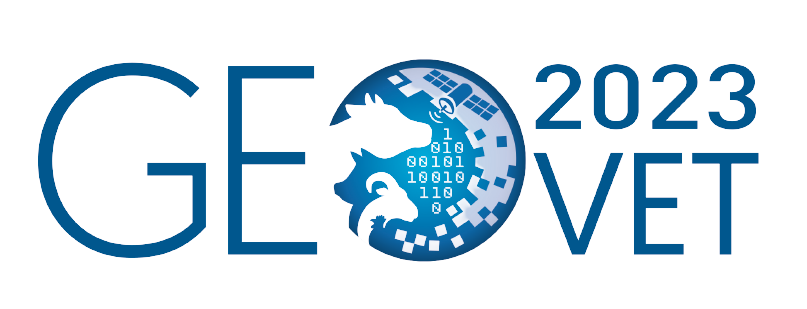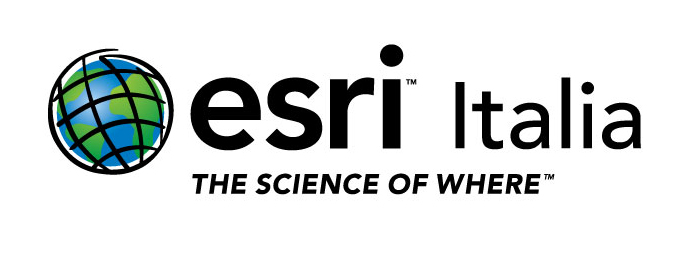
Olaf Berke
Associate Professor of Statistical Epidemiology (OVC)
Olaf Berke
Department of Population Medicine, OVC, University of Guelph, CANADA
Olaf is a statistical epidemiologist with long standing interest in spatial statistics and geographic epidemiology. Further interests include one health, reproducible research and statistical / machine learning. He received his PhD in statistics from the University of Dortmund, and completed a habilitation at the University of Veterinary Medicine Hanover. Since 2003 he is teaching at the Ontario Veterinary College, University of Guelph. Olaf joint GeoVet at its inauguration in 2001; and he serves as an editorial board member for Preventive Veterinary Medicine.

Paolo Calistri
Head of the Epidemiology and Public Health Laboratory (IZS-Teramo)
Paolo Calistri
National Reference Centre for Veterinary Epidemiology
Istituto Zooprofilattico Sperimentale dell’Abruzzo e del Molise “G. Caporale”
Paolo Calistri is working since 1995 at the Istituto Zooprofilattico Sperimentale dell’Abruzzo e del Molise “G. Caporale”. He is the Head of the Epidemiology and Public Health Laboratory. In his remit he coordinates the work of two Units (Veterinary Epidemiology and Risk Analysis, Statistics and GIS), and the activities of the National Reference Centre for Veterinary Epidemiology activities.
Other responsibilities and memberships:
– Responsible for the WOAH Collaborating Centre for Epidemiology, modelling and surveillance.
– Responsible for the FAO Reference Centre for Veterinary Epidemiology.
– Member of the Animal Health and Animal Welfare Panel of the European Food Safety Authority (EFSA).
– Member of the Editorial Board of Microorganisms journal
– Member of the International Society for Infectious Diseases (ISID) Council
He was involved in many international activities aa s risk analysis expert and in several international projects and initiatives focused on the prevention and control of animal health diseases and zoonoses.
More than 130 published papers (h-index: 26).
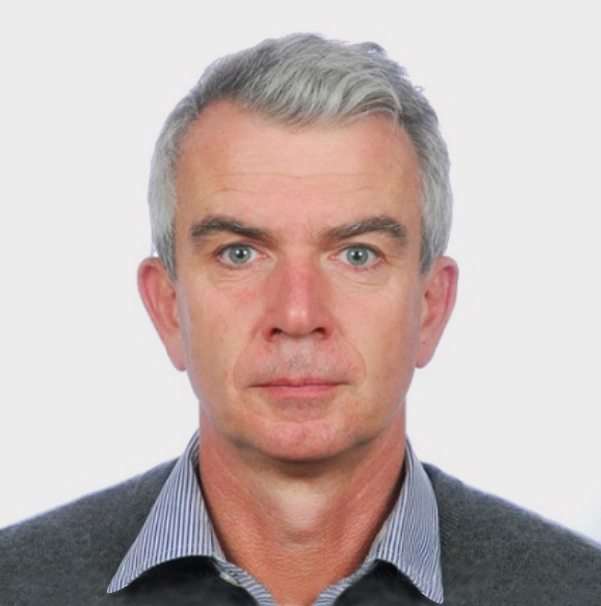
Stephane de La Rocque
Head of the Human-Animal Interface unit (WHO)
Stephane de La Rocque
World Health Organisation (WHO)
WHO Emergency Program
Stéphane de La Rocque is graduated from the veterinary school of Lyon, member of the French Academy of Veterinary Medicine and has over 25 years of experience in the field of disease ecology, early warning and response to outbreaks, with a specific expertise on animal and zoonotic vector borne diseases.
After 15 years as scientist, most time on the field in South America and West Africa, he joined FAO during the wave of Avian Influenza then was contracted by OIE and seconded to WHO to support the preparedness of countries for outbreaks of zoonotic diseases and the contribution of the veterinary services in the IHR (International Health Regulations) in particular. He is now the head of the Human-Animal Interface Team in the Emergency program of WHO.

Peter A. Durr
Senior Veterinary Epidemiologist
(CSIRO)
Peter A. Durr
Senior Veterinary Epidemiologist, Commonwealth Scientific and Industrial Research Organization (CSIRO), Australian Animal Health Laboratory, Australia.
Peter Durr is a veterinary science graduate who has worked as an epidemiologist for almost 25 years on a range of animal and zoonotic disease problems, including bovine tuberculosis, highly pathogenic avian influenza, bluetongue and foot-and-mouth disease. For each of these diseases, he has made extensive use of GIS and spatial analyses, and in the past 10 years has focused on using these tools to facilitate the design and implementation of “Big data” web-based surveillance and emergency response systems. These include a surveillance system (“TAPPAS”) for assessing the risk of long-distance wind dispersion of insect vectors and a decision support system (“SPREAD”) for managing outbreaks of FMD and HPAI.

Mario Giacobini
Associate Professor of Informatics
(University of Turin)
Mario Giacobini
Data Analysis and Modeling Unit, Dpt. of Veterinary Sciences – University of Torino, Italy
Mario Giacobini obtained a degree in Mathematics at the University of Torino (IT) in 1998, and after a PhD a post-doc in Computer Science at the University of Lausanne (CH) he came back to Torino as Assistant Professor first, and now as Associate Professor in Computer Science at the Department of Veterinary Sciences, where he leads the Data Analysis and Modeling Unit.
His research interests concentrate on Artificial Life, both as bio-inspired computational techniques – mainly Machine Learning and Evolutionary Algorithms and their application to biodata mining – and as modeling of biological phenomena – ranging from Epidemiology to Molecular Biology – mainly using concepts and instruments of Network Science.
He is currently Vice Rector for European Relations of the University of Torino, and Coordinator of the Management and Coordination Work Package of the European University UNITA – Universitas Montium.

Helene Guis
Researcher in Epidemiology
(CIRAD)
Helene Guis
Astre (AnimalS, health, Territories, Risks, Ecosystems), CIRAD & Epidemiology and Public Health Unit, Institut Pasteur du Cambodge
Dr Helene Guis is a veterinarian and epidemiologist from Astre (AnimalS, health, Territories, Risks, Ecosystems) unit at CIRAD (French Agricultural Research Centre for International Development), hosted at the Epidemiology and Public Health Unit of Institut Pasteur du Cambodge. She works on vector-borne diseases, zoonoses and One Health approaches. After a PhD (2007) on spatial epidemiology of bluetongue, with Cirad and University of Franche-Comté (France), she did a post-doc at Liverpool University (UK) on the impact of climate change on bluetongue in Europe. She joined Cirad in 2009 to work on the vector distribution and the management of bluetongue in Europe. Hosted at Institut Pasteur of Madagascar between 2015 and 2021, she worked on rabies, arboviruses, and other zoonotic and animal diseases. She has implemented several trainings in Geographic Information Systems applied to Health. She is currently involved in the Grease (Management of emerging risks in South East Asia) network.
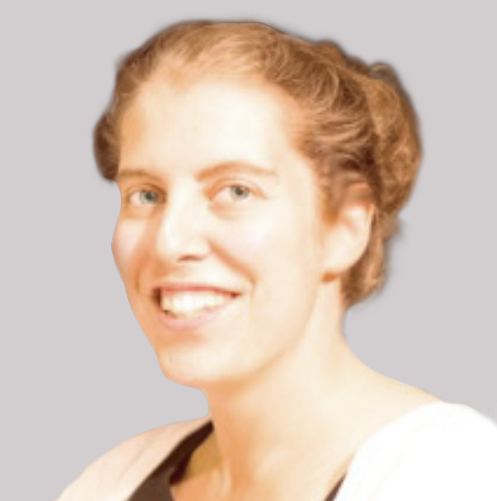
Beatriz Martínez-López
Professor of infectious disease epidemiology (UC Davis)
Beatriz Martinez Lopez
Center for Animal Disease Modeling and Surveillance (CADMS), Department of Medicine & Epidemiology, School of Veterinary Medicine, University of California, Davis
D.V.M, M.P.V.M., Ph.D., is Professor of infectious disease epidemiology at the Department of Medicine & Epidemiology, Veterinary School, UC Davis and Director of the Center for Animal Disease Modeling and Surveillance (CADMS, https://cadms.vetmed.ucdavis.edu) since January 2014, a recognized FAO Reference Center for Veterinary Epidemiology. She has more than 110 publications related with the development and implementation of quantitative methods such as epidemiological modeling, risk assessment, geostatistical methods or network analysis to unravel complex epidemiological problems at the wild-domestic-human interface. Currently, she is leading the development, implementation and validation of novel Big Data analytical and visualization tools and their integration into operational, web-based, user-friendly platforms such as the Disease BioPortal (http://bioportal.ucdavis.edu/) to more timely support animal health decisions.

Guy McGrath
Researcher and GIS Analyst
(UCD Dublin)
Guy McGrath
University College Dublin
Guy joined the Centre for Veterinary Epidemiology and Risk Analysis (CVERA), University College Dublin as a GIS analyst in 1995. This was a stopgap position before embarking on a career in groundwater hydrology. It turns out epidemiology is far more interesting than groundwater hydrology so that’s where Guy remained! Guy’s work focuses on the spatial and temporal aspects of diseases and populations and his research is mostly driven by the need to provide scientific advice to underpin government policy.

Andres Perez
Endowed Chair of Global Animal Health and Food Security (UMN)
Andres Perez
Endowed Chair of Global Animal Health and Food Security, College of Veterinary Medicine, University of Minnesota
Andres is a veterinarian and epidemiologist originally from Argentina. He serves as the Director of the University of Minnesota Center for Animal Health and Food Safety (CAHFS), which is a World Organization for Animal Health (WOAH) collaborating center for capacity building and a Food-and-Agriculture Organization (FAO) of the United Nations reference center for veterinary public health. He has been designated as an Honorary Professor by the Universidad Complutense de Madrid, Spain, as a collaborating scientist by the USDA:ARS foreign animal disease research unit in Plum Island Animal Disease Center in NY, US, and has been awarded the American Veterinary Epidemiology Society (AVES) Honorary Diploma for 2021. He also serves as the Field Chief Editor for the Frontiers in Veterinary Science journal. He is a co-founder and past director of the Ibero-American Society of Preventive Medicine and Veterinary Epidemiology (SIEVPM) and has also served as the Chair of the scientific committee of GEOVET in Sydney, Australia, 2010, and Valdivia, Chile, 2016, and member of the scientific committee of GEOVET in London, UK, 2013, and UC Davis, 2019. He has published >120 scientific papers, supervised, co-supervised, or mentored >50 graduate students, and led educational, outreach, or research activities in >30 countries in the 5 continents related to veterinary epidemiology and public health.

Dirk Pfeiffer
Chair Professor of One Health
(CityU)
Dirk Pfeiffer
Chow Tak Fung Chair Professor of One Health, City University of Hong Kong, Hong Kong SAR, PR China
Professor of Veterinary Epidemiology, Royal Veterinary College, University of London, United Kingdom
Dirk Pfeiffer graduated in Veterinary Medicine at the Justus-Liebig University, Giessen, Germany in 1984. This was followed by postgraduate research towards a Dr.med.vet degree at the same university. After that, he obtained a PhD from Massey University, New Zealand, in 1994, and worked there as an academic for 9 years. Since 1999, he has held the Chair in Veterinary Epidemiology at the Royal Veterinary College (RVC), London, UK. Since September 2014, he has been Adjunct Professor at China Animal Health and Epidemiology Centre, Qingdao, China. From June 2015 to May 2017, Dirk held the role of Chief Epidemiologist at UK Government’s APHA, UK, as a 20% secondment from RVC. In 2016, Dirk joined City University of Hong Kong as Chair Professor of One Health, while still maintaining a 20% appointment at RVC. Dirk has worked extensively at the science-policy interface through advisory roles for the EU, the FAO, OIE and a wide range of national governments.

Laura Rinaldi
Full Professor, Vice Dean Veterinary Medicine (UNINA)
Laura Rinaldi
Department of Veterinary Medicine and Animal Production University of Naples Federico II
Laura Rinaldi (MSc, Phd) is Full Professor of Parasitology and Parasitic Diseases. She became Associate Member of the European Veterinary Parasitology College in 2006 and received the International “Peter Nansen Young Scientist” Award given by the World Association for the Advancement of Veterinary Parasitology in 2011. She is co-founder and Associate Editor of the Journal Geospatial Health and she was President of the International Society for Geospatial Health (GnosisGIS). Since 2020 she has been designed Director of the WHO Collaborating Centre for Diagnosis of Intestinal Helminths and Protozoa. Coordinator, Principal Investigator, Responsible of Research Units and Work Package Leader of several national and EU Projects (PRIN, EU-FP6, EU-FP7, PRIMA, LIFE, H2020, EU COST). Main Research topics: epidemiology (using geospatial tools), diagnosis (using traditional and innovative techniques) and control of parasites of veterinary and medical interest (h-index: 46).

Mark Stevenson
Professor of Veterinary Epidemiology (University of Melbourne)
Mark Stevenson
Professor of Veterinary Epidemiology, University of Melbourne
Mark Stevenson is a veterinary epidemiologist with expertise in the areas of infectious disease epidemiology, spatial epidemiology and investigations into production limiting diseases of farmed livestock. Mark is currently Professor of Veterinary Epidemiology at The University of Melbourne where he leads a group working on applied veterinary epidemiological research with an emphasis on endemic and transboundary animal diseases such as bovine spongiform encephalopathy, bovine tuberculosis, foot-and-mouth disease, Q fever and African swine fever. Production limiting disease interests include reproductive performance and lameness in dairy cattle, preweaning mortality in dairy goats, tailbiting in pigs, Varroa destructor in honeybees and smothering in free range layer poultry.
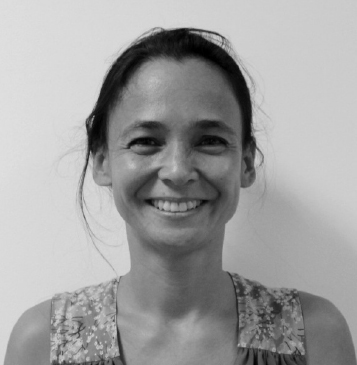
Annelise Tran
Researcher, Joint Research Unit TETIS, (CIRAD)
Annelise Tran
CIRAD – Center for International Cooperation in Agricultural Research for Development
Annelise Tran is a researcher at the Centre de coopération Internationale en Recherche Agronomique pour le Développement (CIRAD), within the Territoires Environnement Télédétection et Information Spatiale (TETIS) Joint Research Unit. After training as a physics engineer specializing in signal and image processing, she obtained a PhD in Earth Sciences at the University of Strasbourg and joined CIRAD in 2004. Her current research focuses on the applications of remote sensing and spatial modelling in ecology and epidemiology.

Micheal Ward
Chair, Veterinary Public Health, University of Sydney
Micheal Ward
Sydney School of Veterinary Science, The University of Sydney
Michael Ward is a veterinary epidemiologist with experience in analytical epidemiological methods, spatial epidemiology and simulation modeling. He has more than 35 years experience in conducting research on infectious diseases. He is a veterinary graduate of the University of Queensland and has held positions within the Queensland government in Australia and the veterinary schools at Purdue University (Indiana) and Texas A&M University. He returned to Australia from Texas in 2008 to take up his current position at The University of Sydney. In 2010 Michael organized and hosed the first GEOVET conference. He has acted as Associate Editor for the journals Preventive Veterinary Medicine and Zoonoses and Public Health. Michael is currently the Editor-in-Chief, Transboundary and Emerging Diseases. He currently leads the Local Organising Committee for the 17th International Symposium on Veterinary Epidemiology and Economics (ISVEE), planned for Sydney in 2024.



